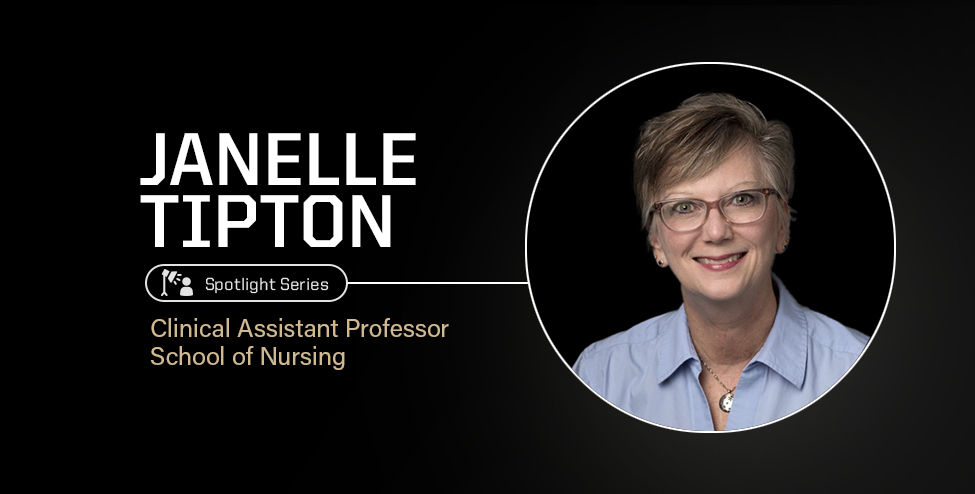Spotlight on Service-learning: Janelle Tipton

Janelle Tipton is a Clinical Assistant Professor in the School of Nursing at Purdue University. Because she went from being a practicing nurse in Ohio to a professor in Indiana, she was able to bring hands-on experience into her teaching methods with a focus on topics of public health. Tipton’s previous history of partnering with nonprofits and community organizations followed her to Purdue’s West Lafayette campus, where she made connections with ease. The guidance of a mentor, Erin Hoying, led Tipton to apply for the Service-Learning (SL) fellowship grant through the Office of Engagement (OoE).
For Tipton, engagement that fosters community partnerships is a main pillar of her teaching. Health is not only about current physical conditions. In her work, she focuses on collaboration in shifting from treatment toward prevention initiatives and early detection, while supporting cancer survivors after treatment. With past involvement in cancer support, she identified the Community Cancer Network in Lafayette, and together they worked on the issue of food insecurity, which tends to plague cancer survivors.
Clinical experiences at LTHC Homeless Services have also impacted student learning and engagement with a vulnerable population. Through her experience with the SL fellowship, Tipton has incorporated clinical work with community partners such as LTHC into the public health course. She added that even though students worked on intervention projects within the community in the past, they were not taught to create a reciprocal relationship with community partners and therefore, could not meet needs efficiently. Now they are better equipped to address problems relative to the populations they service. This is a skill they will take with them into the field after graduation. Students remaining in the local area have garnered civic responsibility and have interest in continuing volunteerism at LTHC. An example of this student collaboration with LTHC has led to increased assessment of women’s health issues, navigation to services, and education.
Being a SL fellow also helped Tipton acclimate to an unfamiliar setting and strengthen her leadership skills as a newcomer. The practices and methods gained as a fellow also helped her incorporate great additions to the curriculum in public health. For the students, it helped build confidence and taught them how to provide services that could continue to benefit communities beyond their period of involvement.
Tipton is excited to continue her relationship with the Office of Engagement, and in her next steps, she hopes to measure the impact of her community relationships. To anyone looking to explore service work in alliance with community needs Tipton recommends that “you do something that you love first. Pick and partner with organizations that you have interest in and grow it from there.”